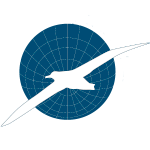World Albatross Day Date in the current year: June 19, 2026
 World Albatross Day is observed annually on June 19. It was created to highlight the threatened or near threatened status of 21 of 22 species of the albatross and raise awareness of the dangers these majestic birds face.
World Albatross Day is observed annually on June 19. It was created to highlight the threatened or near threatened status of 21 of 22 species of the albatross and raise awareness of the dangers these majestic birds face.Albatrosses are large seabirds that make up the family Diomedeidae. Their range includes the Antarctic Ocean and the North Pacific, from Antarctica to Australia, South Africa, and South America. Fossil remains show that albatrosses once lived in the North Atlantic, but they have become extinct there.
All albatross species are large or very large, with the wingspan ranging from 1.75 m (5.7 ft) to over 3.40 m (11.2 ft), depending on the species. They can travel long distances by combining dynamic soaring techniques with the use of predictable weather systems. Albatrosses feed primarily on fish, cephalopods (squids, octopuses, etc.), crustaceans, and offal, occasionally feeding on zooplankton and carrion.
There are 22 recognized albatross species divided into four genera, of which 21 species are listed by the International Union for Conservation of Nature at some level of concern. 15 albatross species are threatened with extinction (two are critically endangered, seven are endangered and six are vulnerable), six are classified as near threatened, and only one (the black-browed albatross) is a least concern species.
The main threats faced by albatrosses are caused by humans, either directly or indirectly. They include hunting for feather trade, which was once common and brought the short-tailed albatross to the brink of extinction in the mid-20th century; being taken as bycatch by fisheries; overfishing, which depletes their food sources; marine pollution; introduced species (such as feral cats, rats and even house mice) that attack adult albatrosses, their chicks and eggs; and collisions between albatrosses and aircraft.
World Albatross Day was created in 2019 by the Advisory Committee of the Agreement of Conservation of Albatrosses and Petrels (ACAP), a multilateral agreement that coordinates international activity in the conservation of albatrosses, petrels and shearwaters. The date of June 19 was chosen to commemorate the signing of the Agreement in 2001.
The ACAP is a legally binding agreement that helps its parties (Argentina, Australia, Brazil, Chile, Ecuador, France, New Zealand, Norway, Peru, South Africa, Spain, the United Kingdom, Uruguay) implement albatross conservation action plans, introduce measures to reduce bycatch, and control the expansion of invasive predator species that endanger the albatross population.
The main goals of World Albatross Day are to raise awareness of the dangers that albatrosses face and consolidate efforts to eradicate these dangers and protect albatrosses from extinction. Each year, the World Albatross Day campaign focuses on a specific aspect of albatross conservation, reflected in its theme. Past themes have included “Eradicating Island Pests”, “Ensuring Albatross-friendly Fisheries”, “Climate Change”, “Plastic Pollution”, and “Marine Protected Areas”.
- Category
- International Observances, Ecological Observances
- Tags
- World Albatross Day, international observances, environmental observances, albatross conservation, albatrosses